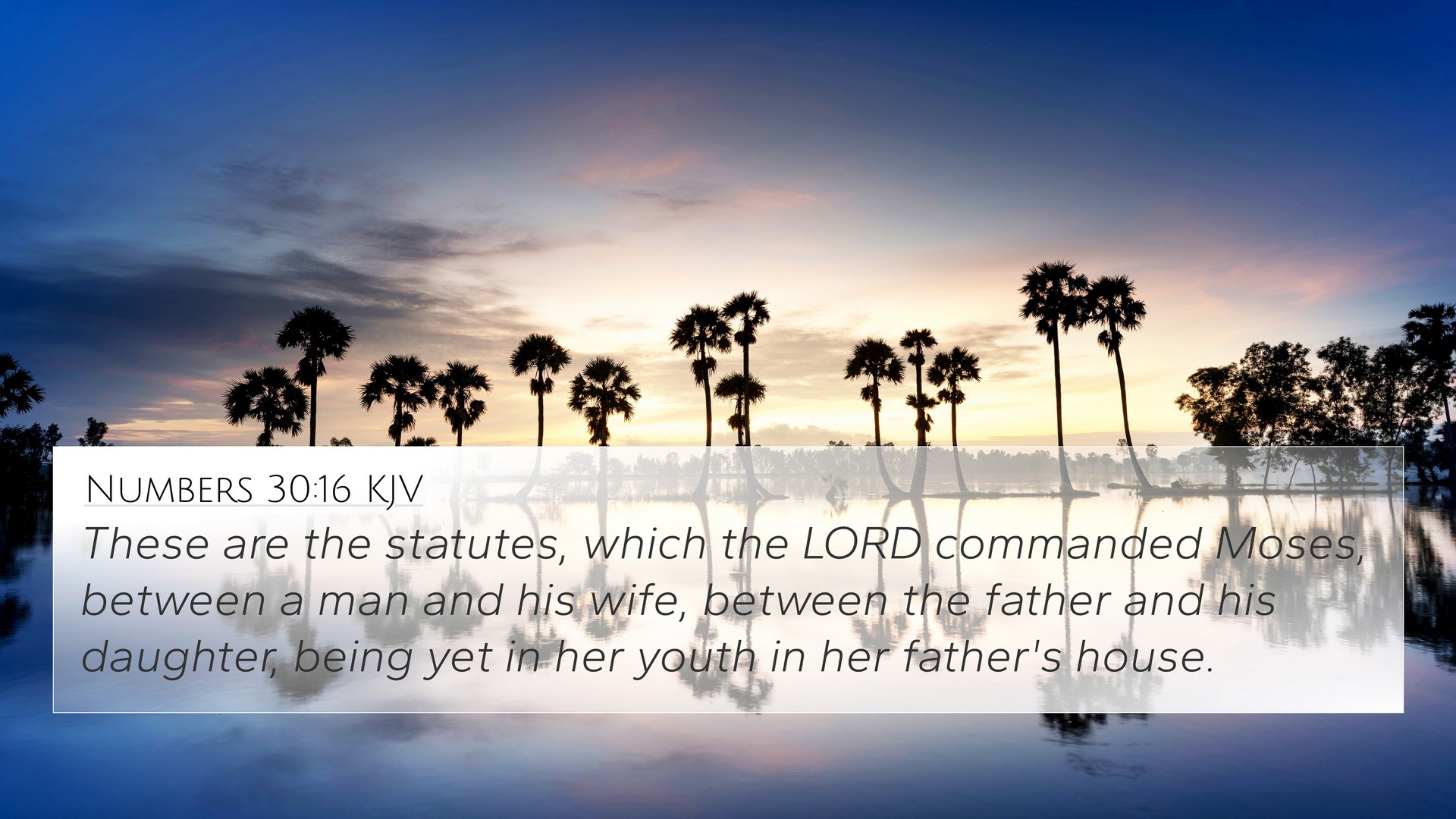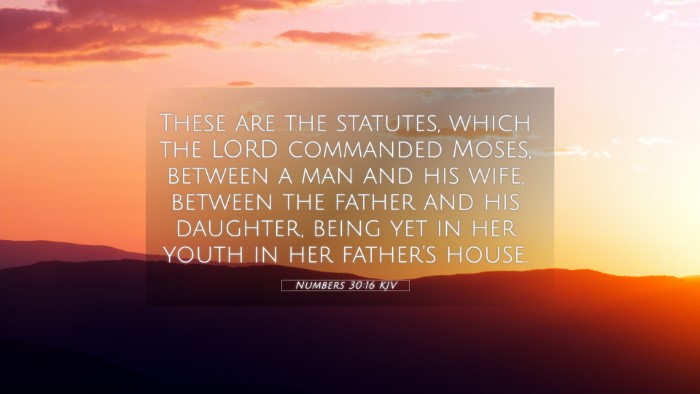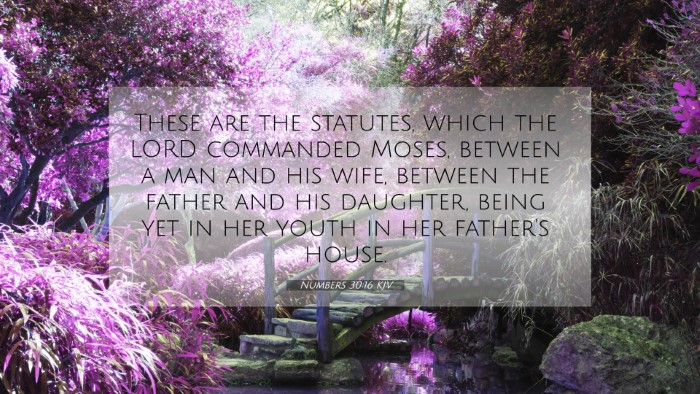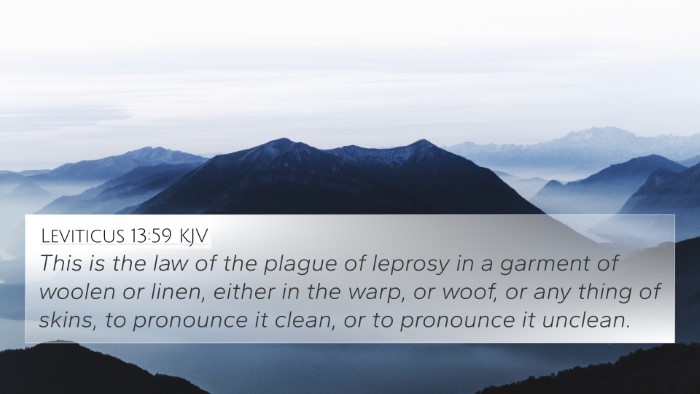Understanding Numbers 30:16
Numbers 30:16 states: "These are the statutes which the Lord commanded Moses, between a man and his wife, and between a father and his daughter, being a widow or divorced, and by her father's house, in her youth." This verse focuses on the regulations governing vows made by women and emphasizes the authority of fathers and husbands in these matters.
Key Themes
- Authority in Vows: This verse highlights the concept of authority regarding vows made by women, showing the paternal and marital responsibilities in Israelite society.
- Divine Instruction: The verse is framed within divine statutes, emphasizing that these instructions come from God to Moses, underlining their importance.
- Gender Roles: This passage reflects the gender roles present in ancient Israel, where men had the authority over legal decisions made by their wives and daughters.
Commentary Insights
Matthew Henry notes that this passage reinforces the significance of family authority in spiritual matters. Women, in this context, are seen as under the guardianship of their fathers or husbands, thus their vows have to be considered within that framework. Henry suggests that this shows the wisdom of God in establishing order and responsibility within familial relationships.
Albert Barnes highlights that these regulations serve to prevent any rash vows made by women that may not be in their best interests. Barnes emphasizes the protective nature of these statutes, indicating that men bear the responsibility of oversight in such matters, revealing both care and authority.
Adam Clarke brings attention to the cultural context of the time and the implications that this has on understanding the text today. He explains that while such practices may seem antiquated, they illustrate how God provides safeguards in a patriarchal society, aiming to protect women and ensure their welfare.
Bible Verse Cross-References
Numbers 30:16 is connected to several key biblical themes and passages, illustrating its significance in the broader scriptural narrative:
- Deuteronomy 23:21-23 - Discusses the importance of fulfilling vows made to God, linking to the theme of accountability.
- Matthew 5:33-37 - Jesus reinforces the importance of keeping one's word, echoing the essence of vow-making.
- 1 Corinthians 11:3 - Highlights order in relationships, touching on authority dynamics within the family.
- Proverbs 31:10-31 - Explores the qualities of a virtuous woman, reiterating the value of women within the family structure.
- 1 Timothy 2:12 - Reflects on the roles of women within the church context, tying back to the authority discussions.
- Numbers 30:2 - Provides the foundational understanding of making vows to the Lord, setting the stage for understanding Numbers 30:16.
- Exodus 20:7 - Commandment regarding misuse of God's name underscores the seriousness of promises made.
- Galatians 3:28 - Emphasizes unity in Christ, showcasing the evolution of gender roles in light of the New Covenant.
- Joshua 24:15 - Encourages commitment to God, tying in with the theme of vows and promises.
- Ephesians 5:22-33 - Discusses the relationship roles within marriage, further explaining the dynamics present in Numbers 30:16.
Conclusion
Numbers 30:16 serves as an important reminder of God's established order within family life and how these statutes aimed to protect and provide for the members of the household. Whether through a theological or practical lens, this verse invites contemporary readers to consider issues of authority, responsibility, and the sanctity of vows.
Exploring More
There is much to explore within the connections between Bible verses. For those interested in Bible verse cross-references, utilizing tools such as a Bible concordance or a Bible cross-reference guide can be invaluable for discovering how these scriptures dialogue with each other.
Implementing a cross-reference Bible study method will enhance your understanding of inter-Biblical dialogues. By identifying connections between Old and New Testament verses, one can gain a more comprehensive view of the scriptural message.







